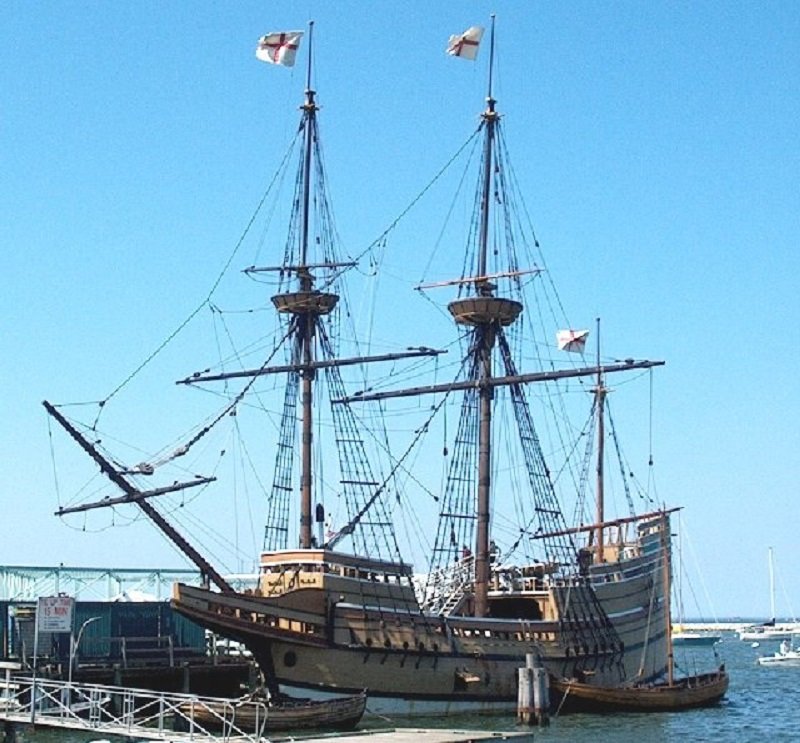Southwark celebrates 400th anniversary of the Mayflower: Can you help mark Mayflower voyage?
BY TOBY PORTER
toby@slpmedia.co.uk
Residents are being urged to dream up ways to celebrate the 400th anniversary of the Mayflower sailing to America, in 2020.
Southwark town hall chiefs this week opened bids for a pot of £140,000, which will help community groups join in the international commemoration.
The Mayflower set sail for America from Rotherhithe in July 1620, taking with it the Pilgrim Fathers, or the founders of the present day USA.
Captain Christopher Jones and many of his crew also lived there – so the area will be central for the celebrations from November 2019 to November 2020 in London, the Netherlands and in America.
Southwark council, United St Saviour’s charity and British Land have jointly created a fund of £140,000 for local projects to celebrate migration, tolerance, enterprise and community.
Community groups, resident associations, faith organisations, schools and cultural groups in SE16, are being asked to come up with projects about the Mayflower’s stories for a local and international audience.
Projects from groups in SE1 and other areas may also be considered. All initiatives must include a live event in the lead-up to the anniversary in November 2020. They should also take place within SE16 or areas of Mayflower significance.
Cllr Rebecca Lury, deputy leader of Southwark council, said: “I am delighted to open the first round of Mayflower 400 funding and welcome local people to join the global celebration of Southwark’s history with the Mayflower.
“I believe the pursuit of the universal concepts of freedom, liberty and justice are just as relevant now as they were when the ship’s Captain, Christopher Jones, sailed the Mayflower from his home in Rotherhithe, carrying people escaping persecution to America in 1620.
“We hope this funding will help bring the story of the Mayflower to generations to come and that the community connections established throughout Southwark’s celebrations, will form the foundation of many friendships and future activities.”
You can find the application criteria and apply for Mayflower 400 funding at https://www.ustsc.org.uk/mayflower-400-grants-fund/

The year 2020 is the 400th anniversary of that remarkable voyage and major celebrations of it are in planning, with a replica craft currently under construction in Harwich in Essex.
Rotherhithe, which had the first docks for London, is aiming to involve all sections of the communities and is part of the international build-up to the 400th anniversary commemorations of the sailing of the Mayflower in 1620 to the New World.
In 1620, The Mayflower sailed from Rotherhithe under her Master, Captain Christopher Jones, who lived in Rotherhithe. Some of the crew were believed to be Rotherhithe men.
The Mayflower took on her pilgrim passengers at Southampton, went on to Plymouth and then sailed to America. The Mayflower returned to Rotherhithe on May 6, 1621. Its Master Jones, who died in 1622, is buried in St Mary’s churchyard where there is a commemorative sculpture by Jamie Sargent.
Rotherhithe men John Clark, the pilot and Master’s Mate, had Clark Island named after him, the Master Christopher Jones had the Jones River named after him and crewman Samuel Ellis had Ellis Island named after him.
The church of St Mary’s Rotherhithe has a memorial to Jones, Richard Gardener and John Moore. John Clarke – second in command – and Richard Gardener were married here, and the ship returned to Rotherhithe to be broken up.
John Beauchamp and James Sherley, from Clapham, were two of the original financiers of the Mayflower (Sherley being one of the two treasurers).
In 1626, they were two of the four who took over the financing of the settlers in return for a six-year monopoly of the fur trade with the Native Americans, and the responsibility for procuring the goods that the settlers still needed from England.
One of the ship’s passengers was Edward Winslow, later three times governor of New Plymouth.
Winslow returned to England several times and for the last time in 1646. He was in Clapham around 1649.
